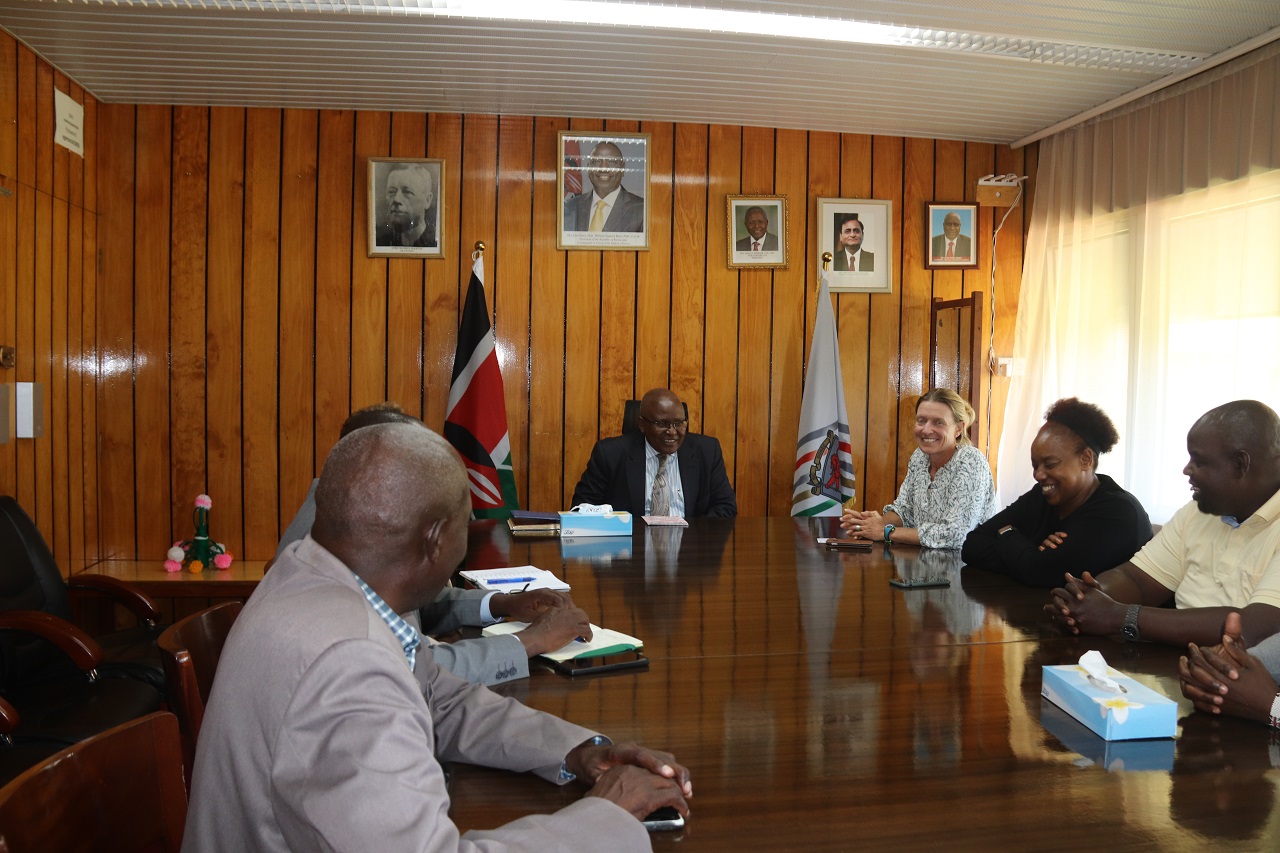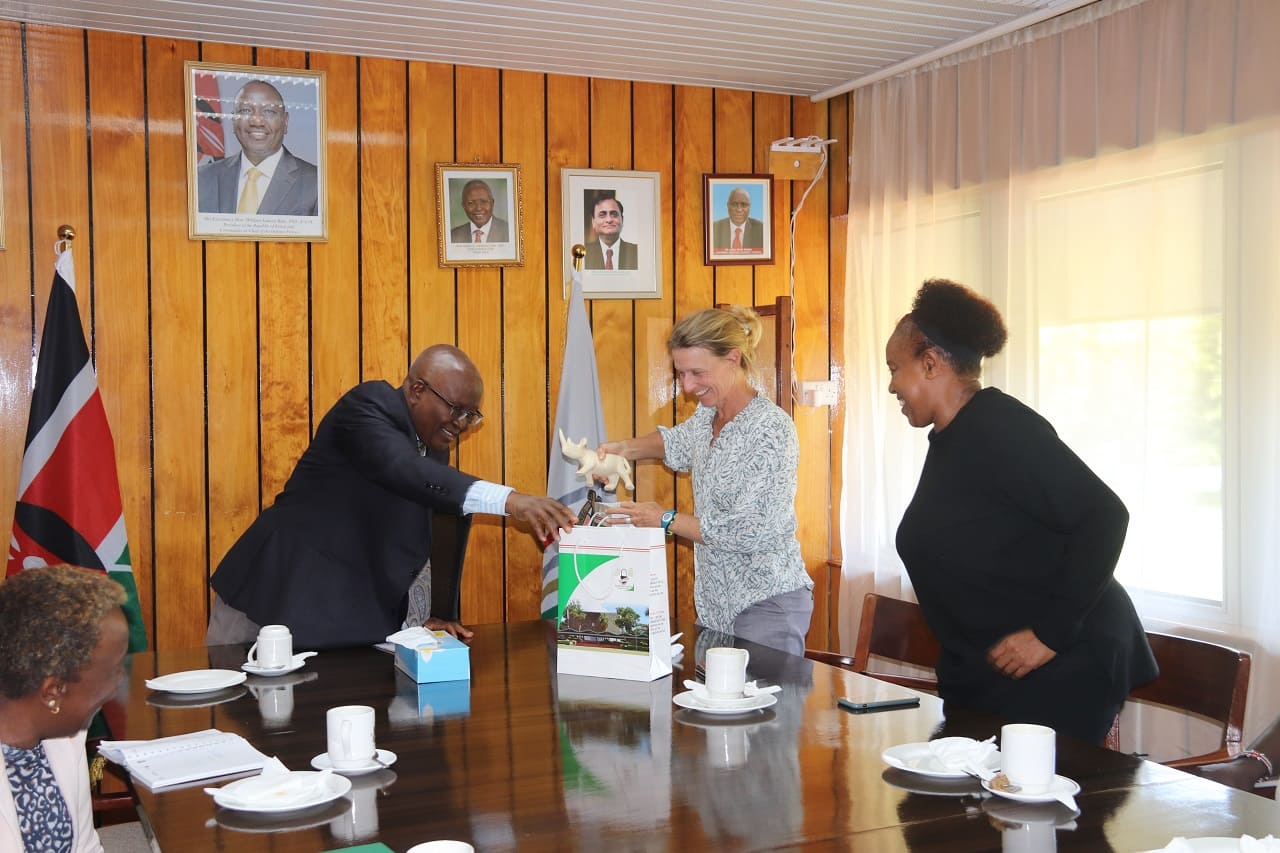Egerton University and the Food and Agriculture Organization of the United Nations (FAO) have led an impactful initiative to boost food security and community resilience in Turkana County, Kenya. The four-year Groundnut Project, launched in 2020 with FAO support, aimed to provide local farmers, including refugee communities, with aflatoxin-free groundnut seeds. This joint effort is coming to a close on November 30, 2024, and on October 30, FAO representatives visited Egerton University to meet with Vice Chancellor Prof. Isaac Kibwage, reflecting on the project’s successes and challenges.
FAO's delegation was led by Dr Deborah Duveskog, the East Africa Regional Agriculture and Resilience Officer. She shared the origin of the project, noting how Insta Products Kenya, East Africa’s largest producer of Ready-to-Use Therapeutic Food (RUTF), approached FAO in search of aflatoxin-free groundnuts from the country. FAO then joined forces with Egerton University to produce safe, high-quality seeds for Turkana farmers.
According to Egerton’s Director of Agroscience Park and Innovation Centre, Prof. Paul Kimurto, the University’s first task was to conduct a feasibility survey assessing Turkana’s agricultural suitability for groundnut cultivation. Once confirmed, Egerton provided support for a community-based seed system and developed aflatoxin-free seeds. The project has also offered research opportunities for Egerton’s postgraduate students.
The Vice Chancellor, Prof. Kibwage, commended the team’s efforts, stating, “Aflatoxins pose a significant health risk, and through our research on aflatoxin-free seeds, we’re helping prevent contamination post-harvest. Turkana County, however, must continue working toward sustainable agricultural practices, especially as FAO funding concludes.” He urged the Turkana County Government to consider taking the lead in advancing the groundnut value chain. “Get more people on board to improve food security,” Prof. Kibwage emphasized. He added that groundnut farming could potentially provide a consistent income stream and a more diversified food supply for local households.
While the project made significant strides, challenges emerged. Dr Duveskog pointed out limitations such as Turkana’s small acreage for farming, which restricts high-tonnage production, and the underdeveloped seed systems in the area. She noted that some farmers ended up using the seeds as food because of drought-related food shortages, illustrating the vulnerability of this drought-prone region.
FAO and Egerton University worked to overcome these challenges by continuing to support farmers in building seed resilience. FAO’s Elizabeth Kamau acknowledged the need for resource mobilization for future initiatives, stating that FAO looks forward to partnering with Egerton on additional projects that will benefit communities in Turkana and beyond.
Prof. Nzula Kitaka, Egerton’s Director of Marketing and Resource Mobilization, suggested a new approach for future projects, advocating for an additional year of monitoring and lessons learned to ensure continuity after funding ends. “Many community projects stop impacting lives once funding is exhausted,” Prof. Kitaka observed. “An extended timeframe would allow us to see projects like this through to sustainable success.”
Although the groundnut project with FAO is ending, Egerton is optimistic about potential future partnerships. Prof. Kimurto highlighted the possibility of expanding agricultural projects that focus on other resilient crops, such as sorghum, pigeon peas, millet, and cowpeas. Training and capacity-building efforts, he suggested, could form the basis of future collaboration, further bolstering Kenya’s food security.
Egerton University’s groundnut project with FAO has provided crucial agricultural support, research opportunities, and community empowerment to Turkana’s farmers. The initiative has strengthened the local food system and paved the way for sustainable development. As Prof. Kibwage remarked, “This project is just the beginning. We need to continue building partnerships and innovations that uplift and empower vulnerable communities.”
Present during the courtesy call were FAO's Ambrose Ngetich, Kenya Turkana Cluster representative, and Gabriel Okata from the Turkana County Department of Agriculture and Bernard Towett, a valued contributor to the project and long-time agricultural expert.










